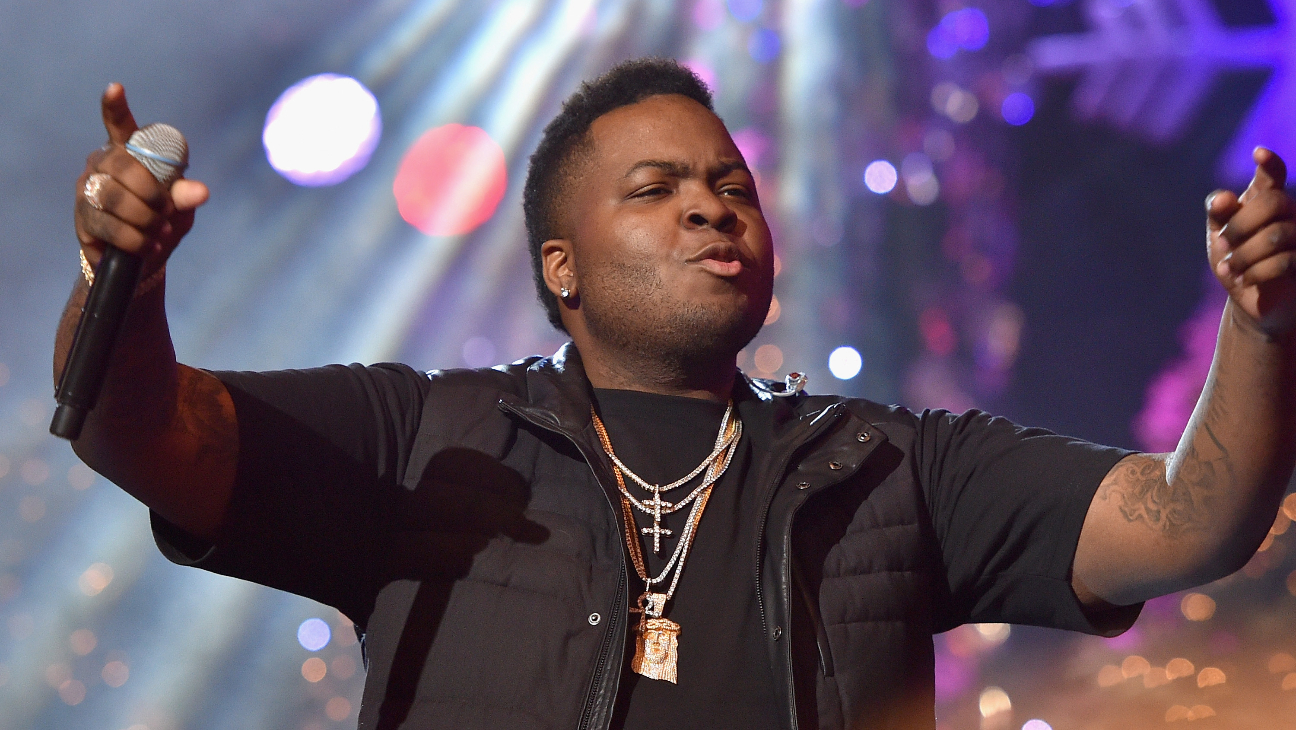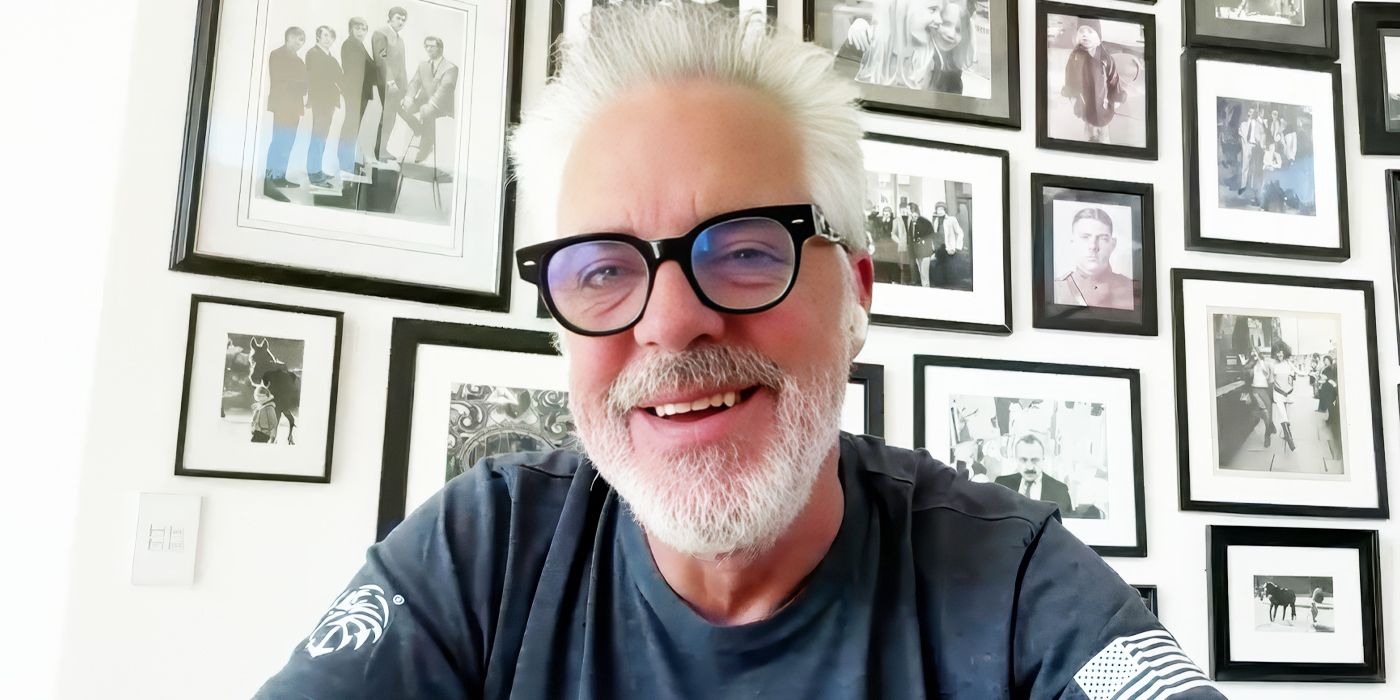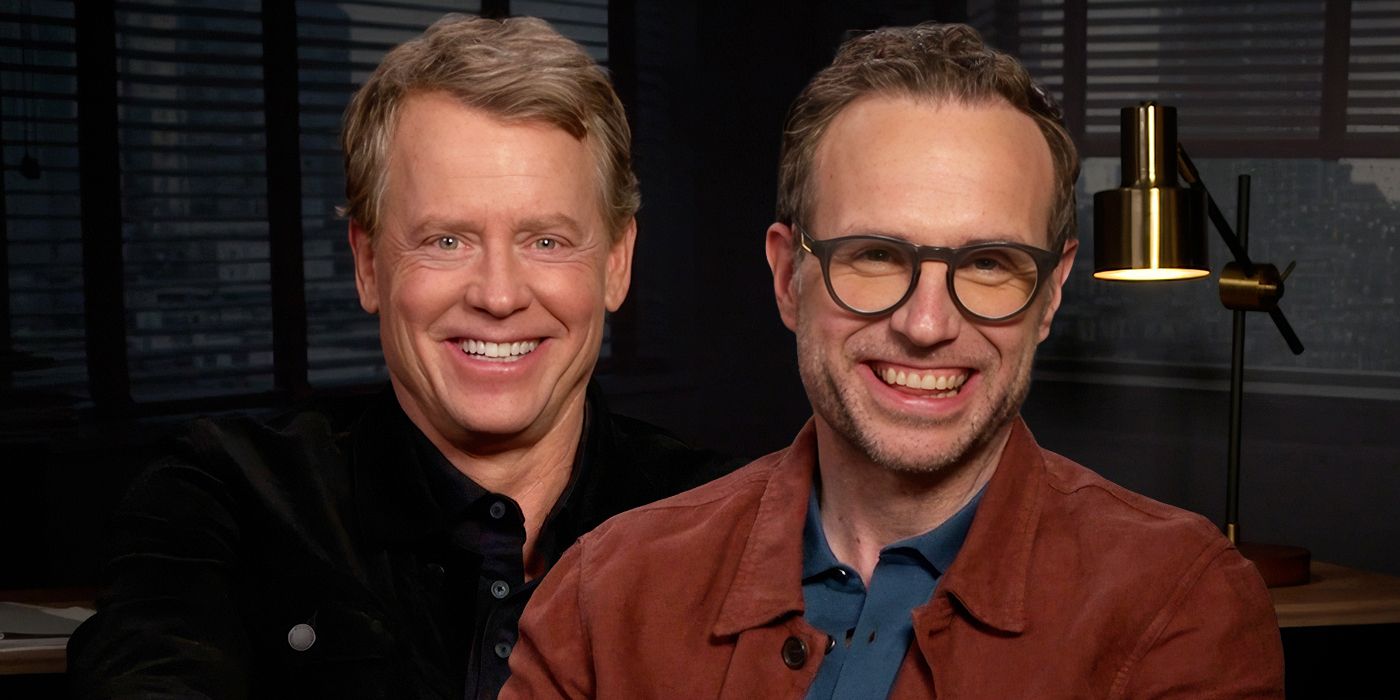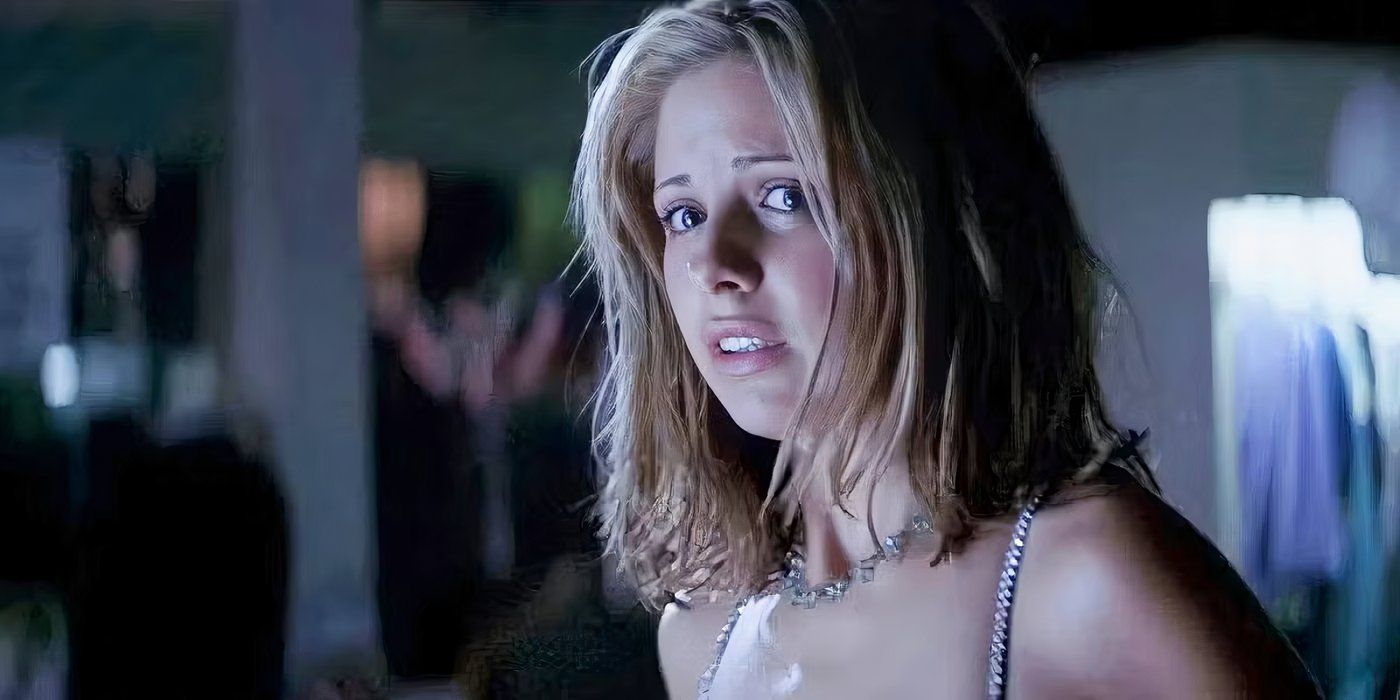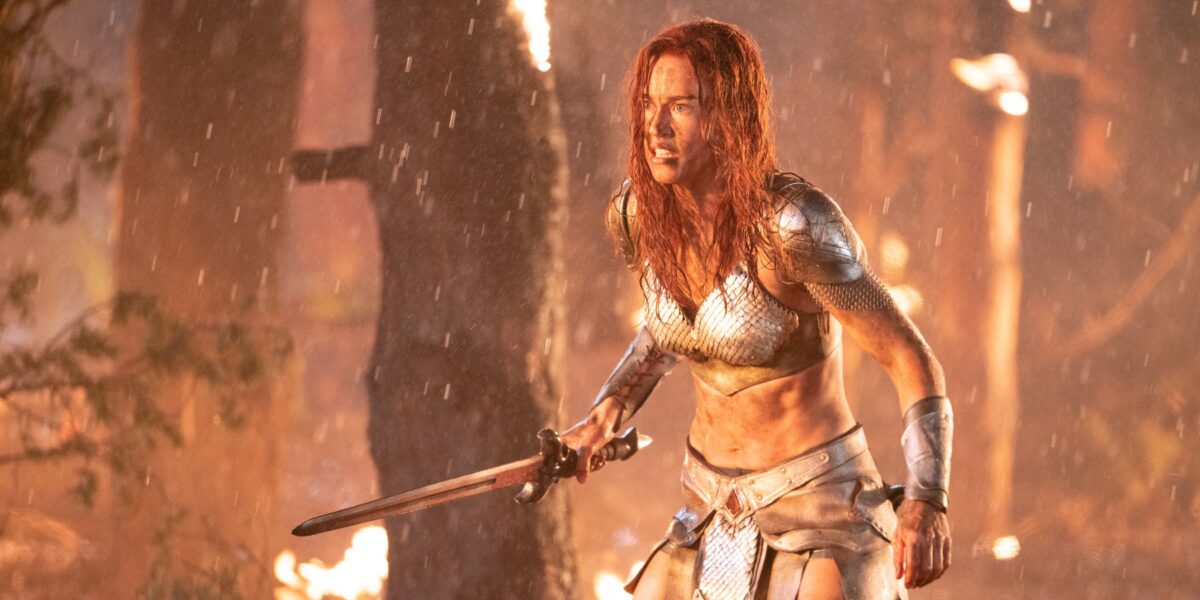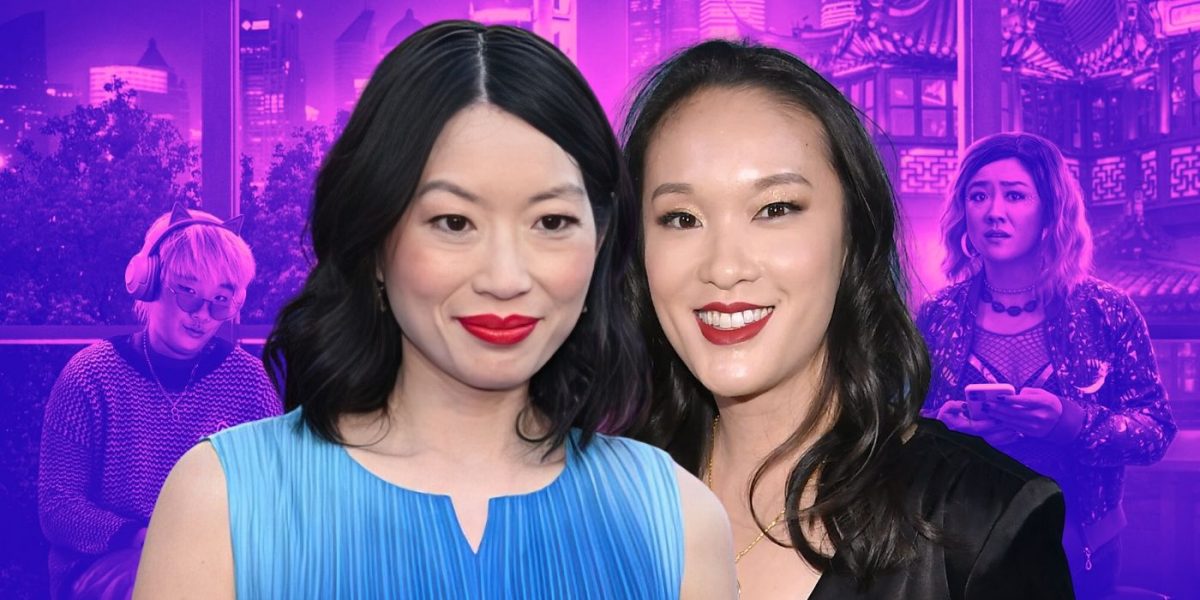
‘Joy Ride’s Writers Break Down the Movie’s Big Plot Twist
Jul 19, 2023
Editor’s Note: The following contains full spoilers for Joy Ride.When it comes to comedies, there’s a specific subcategory of friend group comedies like Bridesmaids,The Hangover, and Superbad that both leans into the bonds of friendship but also how those tight bonds can create ridiculous situations. For instance, in Joy Ride, we follow four women who travel to China and quickly get caught up in a whirlwind of events that leaves them doing drugs, stranded in rural China, and impersonating K-Pop stars.
At the center of the story is Audrey Sullivan (Ashley Park) who is Chinese but was adopted at birth by white American parents. Her best friend is Lolo Chen (Sherry Cola), an unconventional artist who was raised by Chinese parents and grew up with Audrey. They’re accompanied by Deadeye (Sabrina Wu), Lolo’s K-Pop obsessed cousin, and on their trip to China they meet Kat (Stephanie Hsu), Audrey’s college roommate who is now a famous actress in China.
Joy Ride is the brainchild of Teresa Hsiao and Cherry Chevapravatdumrong, two writers who met in the writers’ room for Family Guy, and movie director Adele Lim. Hsiao and Chevapravatdumrong penned the film and also serve as producers for the film. We spoke with Hsiao and Chevapravatdumrong recently about their work on Joy Ride. We talked about their origins as a writing duo, about Asians in comedy, and about taking on a feature debut film for the first time. We also discuss that major plot twist in the film and break down the inspiration for each of the four characters.
Image via Lionsgate
COLLIDER: I wanted to talk to you guys about Joy Ride because I have been wanting to see it for so long. I missed opportunities along the way, and now that I’ve finally seen it, it’s amazing. I just had the funnest time watching it. I went from Past Lives to watching this right after, so it was a real mood lifter.
TERESA HSIAO: Wow!
CHERRY CHEVAPRAVATDUMRONG: What a day! [Laughs]
HSIAO: Yeah, what a whiplash day.
It was a great way to end my day because I was crying in a bathroom for, like, 10 minutes [laughs]. I was like, “Great, I’m going to go watch a comedy and find joy in my life again.”
CHEVAPRAVATDUMRONG: Hopefully we solved some trauma that Past Lives gave you.
Not all of it, but most of it.
CHEVAPRAVATDUMRONG: Listen, that’s gonna stick with you. That’s the thing.
So tell me about how this idea came about, and how your partnership first started for this project.
CHEVAPRAVATDUMRONG: We met on Family Guy. We met as writers on the set of Family Guy. It kind of was partly a grain of the idea that it eventually came about when we decided to write this movie. The script on spec, at first, is Teresa and I were the only Asians and the only women on the entire staff of Family Guy. It was like us and 17 white guys, so we basically locked eyes across the room and ran towards each other and never let go.
HSAIO: We had a Notebook moment.
CHEVAPRAVATDUMRONG: What?
HSIAO: We had a Notebook moment where we jumped into each other’s arms.
CHEVAPRAVATDUMRONG: Yeah, it was raining indoors in the office somehow. [Laughs] But that was the thing, that was, I want to say, well over 10 years ago now, so we’ve just been friends the entire time. So this movie was really just born out of that friendship. We had the same comedic sensibility, we love a hard R, you know what I mean? We love to push some extremes. And Adele Lim, who we met through other TV writers, so we were also all friends…We got the idea, and we just started thinking it would be really fun to write a comedy movie that we would’ve loved to see growing up. So the three of us would get together and hang out and have dinner and be having some drinks, and just sort of talk about what story we could tell.
Then, when it came time to actually writing the script, Teresa and I, as the comedy writers, just went off and did it. It was a lark! It was fun. We both had full-time TV jobs at the time; this was a full side hustle. We were like, “No one’s ever going to make this movie. We’re just doing it for fun. We’re doing it to make ourselves and each other laugh.” Then, as what happens, and since we are technically professional writers, so some months later we did have a script, and we were like “Oh, we have people who could send this out.” So we did!
HSIAO: Yeah, it was definitely writing a thing that we didn’t think was ever gonna get made, but we just thought it was fun to write together. Obviously, a lot of the elements of the script ended up changing in the writing and the re-writing process, but most of the big emotional story kind of stayed the same. The big emotional tentpoles of the movie were there from the very beginning. We always knew that there were going to be certain twists along the way that we wanted to have, that there were going to be certain elements of the characters’ personalities that we really wanted to hit that were kind of similar to things that we had experienced growing up. And so, a lot of what’s in the movie is really kind of based on our lives, our friends’ lives, and our own personal pussy tattoos.
CHEVAPRAVATDUMRONG: [Laughs] Write what you know. We both have giant tattoos, so we were like, “Justice for giant tattoos!” We wanted to put that out here.
HSIAO: Representation for tattoo people.
CHEVAPRAVATDUMRONG: Yes.
Image via Lionsgate
So this is both of your film feature debuts, talk a little bit about the journey to get here for you. Is this the type of story that you always wanted to tell? Not just the journey as writers in a writing room, but from the beginning, so to speak.
HSIAO: From the very beginning, Cherry and I both came into this industry not being like, “Oh, we want to be writers.” I worked in finance for a bit. I remember thinking, like, “Oh, it would be cool to write for TV,” but not knowing if there was any way to do it. I remember any time I used to watch TV or watch movies, I would go through the credits and just look for names, like Asian names, especially Asian female names. And I’d be like, “Oh, well there’s some people who are doing it, but they’re very few and far between.” But it always stuck with me that it was eventually possible, even if it was very rare.
When it came to actually getting the opportunity to work on a show, and Family Guy being the first big TV show that I worked on, it was definitely, honestly, not a path that I would have foreseen for myself. Like, I had done the sort of practical thing that was, “Oh, you go, you work in finance. I have a summer.” I was like, “I’m summering at a big, prestigious investment bank.” That turned out to be Lehman Brothers, it went bankrupt a year and a half later. So, when that safe path doesn’t work out, you end up thinking, “Hey, maybe try the thing that you never thought was gonna work out anyway.”
CHEVAPRAVATDUMRONG: To Teresa’s point of looking for Asian names in credits, one of my very core memories about this topic is when I was a kid, I wasn’t even really allowed to watch TV for a lot of my childhood, by the way, because my parents wanted me to study — thanks! But they caught me watching Margaret Cho doing stand-up on TV.
Oh no.
CHEVAPRAVATDUMRONG: We had the biggest fight about it because they confronted me. I was just watching it! I wasn’t even saying anything. I wasn’t like, “Oh my god, I might want to be a writer or go into comedy one day.” And I’m not even mad at them for this, but they were just like, “Asians can’t make it in comedy.” Frankly, statistically at the time, that was true. I’m saying Margaret Cho because that was basically, like, the only big name floating around at the time that I could point to. And when they saw me doing that, they were immediately worried. They were like, “We have to quash this.” [Laughs] “We have to make sure that she doesn’t do this.” So I went to law school and spent a bunch of money.
HSIAO: That’s an Audrey (Ashley Park).
CHEVAPRAVATDUMRONG: I’m very Audrey. And then I had to spend a bunch of time paying off my student loans. But that was the thing. At the time, there was nothing to go on. Like Teresa said, I moved to LA. I didn’t know anyone, I knew zero people in the industry. I found an apartment on Craigslist, I found a job on Craigslist. My first job was working at an agency as an assistant, as one does, and I just kind of had to work my way up from there. And then I was lucky enough to become a writer and do the thing. But also, that’s the thing, I spent—and I think Teresa spent, as well—a lot of our earlier years in writing where we were learning about comedy, we were learning how to do the thing, but we didn’t really get to write for, necessarily, voices, characters that look like us until much later. Thank you, Teresa. Her show, Awkwafina Is Nora From Queens, when she and Nora brought me on staff there, that was literally the first time that I ever got to, “Oh my god, this whole show is about an Asian family, and I get to write about something that is much more akin to my experiences growing up.” You know, I get to write the jokes about it, but I also get to write more culturally specific stuff and stuff that was just more me than some of my previous jobs.
Image via Lionsgate
I definitely think you can feel that personality coming through. I’ve said this before; I feel like just having an “identity story” these days, I don’t think that’s enough. I feel like a lot of movies can tackle the identity issue and make it very surface-level, whereas I think this movie really, really goes deep into it. I think it’s because you have these four characters who are different facets of a similar person. Can you talk about the inspiration for these characters and where you drew from? I’m going to ask questions specifically about each character, but just a general idea of where you guys got inspiration to pull from?
HSIAO: I think a lot of it, in general, if we’re talking generally about the characters, a lot of it comes from our own experiences growing up. So, growing up in predominantly white towns, I remember when I grew up, there was only one other Asian girl in my entire school and her name was Lisa, so we had rhyming names, so we got mixed up a lot. But we were immediately like best friends, and it’s just one of those things where I look back, and I always wonder, were we best friends because we actually had a lot in common, or were we best friends because we were like, ‘Oh, we’re both Asians,’” and we just had to be best friends? So, so much of the relationship between Audrey and Lolo (Sherry Cola) when they come together is kind of based on our relationships of like the people you grow up with.
I remember when eventually she ended up moving away when I was in seventh grade, and then I was the only one. It was just one of those, like, you do things then because you just want to make friends that, now looking back, it’s like, was I proud of my background? No, I was trying to tamp it down, I was trying to fit in, I was trying to assimilate. I didn’t want to be doing things that were considered weird. I just wanted to fit in with everyone else in the school. So I think it took us, obviously both having individual experiences, but also just knowing that we went through this, that it is a deep part of our identity, but then coming out of it and being like, “Actually, we need more Asian people being like, ‘I feel like I can be proud of my culture.’” You can be cool to be Asian now. That is something I think has changed a lot since when we were growing up, but at the same time we, at least I, definitely remember feeling a lot like I needed to shelve it away in order to kind of fit in with everyone else.
CHEVAPRAVATDUMRONG: Then, for some of the other characters, I think that those were all fictionalized, but sort of grounded in a vibe of truth that I think a lot of people can relate to. We’ve got friends who, you know, maybe had a certain kind of lifestyle in college times where they were doing more drugs and doing more things, and now, some number of years later, they’re more buttoned up. Maybe they’re married and have kids now, and would not necessarily want to talk about things they were doing that long ago. I feel that is a vibe that often happens, so that is a little bit of Kat (Stephanie Hsu). Kat is just Lolo some years down the line. Kat, like we said in the movie, is Lolo who grew out of it.
For Deadeye (Sabrina Wu), specifically for the fandom part of Deadeye, which we always knew they were going to be a BTS fan, we always knew we wanted to build the character around someone who had something they were obsessed with, and that they were comfortable about that, and it was just a matter of translating their online friendships into real-life friendships. I mean, I’m a fangirl, so that’s definitely based on actual knowledge. It was kind of a thing where, if you’re not in a fandom, you might not understand what it is, you might not understand spending so much time on something, being so obsessed with something, being completely comfortable chatting for hours and then later meeting up in real life at a concert of people. It’s literally on the internet, you don’t know these people, but fandom brings people together, and for the character of Deadeye, that was something that we really wanted to showcase. I feel like, for a lot of the other characters, there is an identity journey, and obviously Deadeye has their own identity journey, as well, but this particular part of Deadeye’s identity, we wanted to be like, “Nope, they’ve got that nailed! They know that. They know they love BTS and they know they love their BTS friends.” No questions there.
Image via Lionsgate
I love that aspect of their character. I was like, “Oh, I relate to this!”
CHEVAPRAVATDUMRONG: [Laughs] “I feel seen.”
One of the things I love about this movie is that it’s so relatable. A lot of times, I watch TV shows—especially in the past—with Asian American female characters, and I feel like, “Oh, I don’t really relate to those,” because I’m also kind of crass [laughs], like, “This person doesn’t really seem like they would be fun.” But was there ever a line for you guys when you were writing this script, because this goes to some wild places, where you were like, “Maybe we don’t need to cross that line?” Or was it like, “No bad ideas. Let’s just get through this?”
CHEVAPRAVATDUMRONG: The latter. No bad ideas.
HSIAO: No bad ideas.
CHEVAPRAVATDUMRONG: We’re disgusting. We don’t have a line. [Laughs] We were just trying to crack ourselves up, and we just were not worried about it. I think there is literally no point in our lives that Teresa has ever said anything that has offended me.
HSIAO: I’m really trying, though.
CHEVAPRAVATDUMRONG: Yeah, we’re trying. Goals. But yeah, when writing the script, there was not a line, and credit to when we hooked up with our producers as Point Grey. They are obviously old veterans at hard R-rated comedy, as well, and they were just like, “Nope, more! Let’s go. Let’s do it!” So, that was nice.
HSIAO: We can always pull back. I think part of the line was always [that] we know we want these characters to be lovable, but have flaws, and hopefully you can be emotionally invested in them in a way that they can say and do the craziest things, but you’re still not like, “Wow, that was too much.” So much of that credit goes to the actors being just incredible and embodying these people so that they did feel real, they did feel grounded, and they don’t feel like caricatures of anyone because, obviously, that’s the biggest pitfall when you do have four distinct characters like this is for someone to be just, like, the insane one. They bring so much of the humanity to each one of their characters.
Image via Lionsgate Movies
Going into the character of Audrey for a second, I found her story to be quite a surprising journey. Obviously, there’s the idea of her exploring her adoption story, but also there’s the twist that she finds out she’s not even Chinese. Can you talk about where that idea came from and what made you guys think, “Okay, this is the best way, we’re going to pivot partway through the movie and sort of change the tone of everything?”
CHEVAPRAVATDUMRONG: It came partly from the general thing of, you know, 23andMe DNA tests are such a big thing now. Just knowing that, like, let’s face it, statistically, a lot of people—and not even adopted people—are finding out their dads are not actually their dads. We now have the technology to find out, possibly, information about ourselves that we didn’t have before. So, partly that, and there’s also something that one of our friends, who is adopted, once said. She’s adopted, she’s Korean, but this was just kind of an off-the-cuff remark, she was just like, “But I don’t know! I’m adopted. For all I know, it could be…” you know? It was just like, “Yes, that’s where I was found and adopted, but for all I know, it could be anything.”
So it was just kind of that. It was really that, yeah, this is the story, and these are the facts that people may have, but sometimes, if that is what the start of your life was, and if records were not necessarily as good, and oftentimes these are adults, so this was, like, 20 or 30 years ago now, it was just that core of not knowing. That was something that we also thought that even if you’re not adopted that you could also relate to. That identity journey. People don’t always come out fully formed as humans. No! We’ll take 10, 20, 30 years to figure out who we are sometimes. So that was kind of the core of that and how we wanted to build the story around Audrey’s journey of that.
HSIAO: It was also kind of thinking of it from the standpoint of, especially non-Asian people when they see Asian people, you’re just all lumped into one group, right? You are lumped in, you’re all kind of this one thing, and I think when people see these characters, they’re like, “They’re all the one thing.” Then eventually, you find in yourself, “Oh, there are differences.” Obviously, there are a lot of sort of, like, inter-Asian jokes, that sometimes you probably wouldn’t get unless you’re a specific group. But at the same time, it’s still universal because everyone understands there are just elements of the community, like, “Oh, this is Chinese people versus Korean people versus whatever.” But I do think that was really important for us to show Audrey comes from a place where she’s been lumped into one group. She doesn’t really have that differentiation yet of really understanding her cultural background because, again, she’s the one who’s like, “I’ve assimilated. I’ve tamped it down. I don’t even care about this.”
And then for her to, finally, at Nai Nai’s (Lori Tan Chinn) house, be like, “I care about being Chinese,” and then have that rug pulled out from underneath her, we thought was a fun way to kind to get this message in of, “We’re not all the same.” Yes, we might look all the same to a group of people, but we have our differences. But, at the same time, even though we do have these cultural differences, it doesn’t really matter. You’ve found your people, whether or not they’re Chinese or they’re Koreans, you found your friends. I think the biggest element of the story is all about friendship, right? You find people who are going to be your ride-or-dies and no matter what their cultural background, no matter what it is, if they can get you to a better version of yourself, and you can find out, “I know myself better than I knew myself before,” then those are the people that you should be with.
I love that idea. When I was watching this movie, I was like, “Ashley Park is not Chinese.” Another movie where they just cast an Asian person, and then I was like, “Oh! No, they are going to make her Korean!” And I like the little inside jokes, like when they’re going through the airport. I’m Chinese, so when they were making jokes about the Shanghainese people, I was like, “Oh yeah, that’s the stereotype for sure.”
CHEVAPRAVATDUMRONG: [Laughs] “Yeah, that checks out, okay.”
Image via Lionsgate Movies
That’s when I was like, “Yes, they know.” Then, talking about Lolo, first of all, Sherry Cola is hilarious. I think she’s the perfect cast for whatever movie she’s in. I think a lot of Asian Americans have her experience, where you have this passion that you want to pursue where, like you guys and myself, your parents maybe don’t support it because they want you to have a stable career and stability in your life. But I actually think one of the interesting things about her is that she calls Audrey out a lot for being raised by white parents, and I think she does it unconsciously, but it’s something that just comes so easily to her. Why do you think she does that so much?
CHEVAPRAVATDUMRONG: I feel like that’s the kind of thing where you might clock it, but you only say it out loud because it’s someone you know so well. Audrey’s her best friend. You’re so completely comfortable with your own friends that people can just kind of say things. By the way, not to say that that’s always good. Again, you can be so comfortable with them that you can accidentally be saying thoughtless things, things that are actually hurting them, or in the back of their heads, they’re like, “Oh, that was kind of mean.” But it really is because they grew up together and they know each other so well. Sometimes you are the most seen and the most attacked by the people who know you the most well. So, that’s why Lolo probably– She’s thinking, “We’re besties, this isn’t gonna hurt her feelings or anything.” And again, Lolo’s very comfortable with the Chinese side of her, so that might be a blind spot on her side as well. It’s like, “Oh, that’s super casual.”
I feel like Teresa and I know Asian friends who don’t like boba or don’t like Asian food, and it’s like sometimes you can’t help it because you’re like, “Guys, it’s delicious!” You’re just defending the food, and you’re not necessarily thinking about how the Audrey person might feel about that because you’re just saying, “What do you mean?”
HSIAO: We’re just huge bullies to our friends who don’t like boba, is our thing.
CHEVAPRAVATDUMRONG: How dare they!
When she said “I don’t like boba,” I was like, “Mmm, well, okay. Maybe you should try it more.” You never know. [Laughs]
CHEVAPRAVATDUMRONG: That’s what I’m saying! It really is. It’s small things like that when we actually shine a light on it, can be, “Oh my god, this is a bigger thing. It’s a cultural community you’re raised by.” But at the time, in the moment, you’re just mad that someone doesn’t think this delicious snack is delicious, you know? Justice for boba.
HSIAO: Justice for boba, but also, I think justice for the idea of the character being like, “I know myself. I’m very proud to be Asian,” and being a little offended that your best friend is not that same way, right? It’s like, again, she is not Asian enough for me because I am incredibly proud. And so, wanting your best friend to be like, “I love being Asian as well,” I think that that’s something Lolo’s character definitely takes on in this way. Obviously, I think everyone has that sense of not feeling Asian enough or not feeling whatever enough for someone else. And a lot of times, it is your best friend who will call you out on that stuff. Again, it may not be the best intentions, it may just be a little bit of a needle that pokes, pokes, pokes, pokes until you finally freak out. But yeah, that was something we definitely wanted to show because I think it’s something that all kinds of friends— we all poke each other at various things, and sometimes you go too far.
Image via Lionsgate Movies
Definitely. I think their friendship can survive that, thankfully. Meeting Kat in China, I love that character because a lot of people have this conception of Asian Americans that’s like, “Oh, they grew up in America, they stay in America, they assimilate but not assimilate.” And she goes back to China, which is a common thing, and I don’t think we see it a lot. Where did you take her inspiration for her for being a television star, kind of multicultural in that way?
HSIAO: It’s sort of starting to happen where you do see Asian Americans going back to “the motherland” and finding success there. You even see it in K-pop with people coming in from the States and then, all of a sudden, having huge success back in Korea. So there was definitely an interesting element there, but it’s mostly about her story of having had a crazy sort of fun time, and then going back to a place where her family is there, it’s a little more conservative, she has to fit into this mold of being the good girl. Obviously, a C-drama thing of, “Oh, you’re the ‘good girl’ on the C-drama.” So, then trying to basically reimagine her whole image so that she is now part of this world that she really shouldn’t have been in. That was just something that we found to be fun. It’s like, in moving to a different place, you can reinvent yourself in another way, and it’s kind of the opposite of the immigrant story. You’re doing it, but backwards.
Image via Lionsgate Movies
Touching on Deadeye, because we already talked about them, but I also think there’s an interesting aspect to their story where they have this desire to be closer in that friend group, but they’re kind of constantly right outside of it. They develop that friendship with Audrey that they want so badly; can you talk about looking at that aspect of it, and also if there were any elements of their story that you wanted to explore more if you had more time?
CHEVAPRAVATDUMRONG: Yes and no for elements of their character, and you could say this for all of them. When we were writing this, we literally had a chart. It was basically all four characters across the top, all four characters vertically, as well, and we wanted to make sure that every single character had their arc. And then, because we had this chart like this, we wanted to make sure that we had all four characters interacting with everyone else, and how they affect each other’s arcs. So, on the one hand, yes, we made sure to have all that information; on the other hand, you know, movie running time, don’t make it too much longer than 90 minutes. So there were things that had to be cut. But we know that that’s the movie, and we know that there are aspects of Deadeye’s story that were not the main story of the movie. So definitely, there were things for everyone that we eventually had to end up cutting for the sake of the actual most important movie story, but we feel like that was definitely helpful for us writing it, and helpful for the actors to know that going in as well. So, who knows?
So on the one hand, yes, but on the other hand, what we came up with, we don’t feel like, overall, necessarily we gave short changed anyone. We feel like we utilized enough of everyone’s story to make sure the main story of the entire movie came through.
I definitely felt it. I’m very grateful that it was 90 minutes and not, you know, a three-hour movie that I had to sit through.
CHEVAPRAVATDUMRONG: What? You didn’t want a two-hour and fifteen-minute R-rated comedy just cram— [Laughs]
I would have watched two hours and fifteen minutes, but walking out, I was like, “Wow, the sun is still up? This is amazing.”
CHEVAPRAVATDUMRONG: “I saw two movies today! It’s great.” [Laughs]
Image via Lionsgate
And they were both 90 minutes! Speaking in general about this experience, what is the biggest takeaway that you have from working on this project that you’ll bring into your next project or your future films?
CHEVAPRAVATDUMRONG: Movies are really hard, but it is very, very possible to learn how to make them and to take all that knowledge forward. This is a thing where we have worked in TV before, movies definitely are a bit of a different animal, but it was really nice to be able to, again, sign on as producers and be there through prep, and be there every single day on set, and be there through post, and be there in editing and be there for all the marketing meetings. This was such a huge learning experience, and that was very nice. Now we have that knowledge going forward. We’ll be smarter! We’ll be smarter on the next movie. We’ll be smarter going in.
HSIAO: I think exactly what Cherry said. Because we wrote the script we were able to say, “We want to sign on as producers for this movie. We want to be there every step of the way,” which I think a lot of times you don’t get to do as screenwriters. You’re sort of passing the script. And just knowing that as writers, we were there on set, writing the entire time, rewriting on the weekends, rewriting on nights, knowing what we shot the day before, knowing that things change all the time. Writing really, honestly never stops. Obviously, that’s something that really pertinent right now since we’re in the middle of the writers’ strike. So being there the whole time was a big blessing, and we want to thank Point Grey, our other producers, for really allowing us that opportunity to be there the whole time.
Yeah, I think this movie would have been very different if you guys were not there through the whole entire story. You can definitely feel that. You can feel the presence of a very strong backbone for this film.
CHEVAPRAVATDUMRONG: Our fingerprints are all over it! We were never not touching it.
Publisher: Source link
The End Is Nigh for This Once-Exciting Horror Franchise
Found footage is perhaps the most unfairly maligned subgenre of horror out there. It is a divisive form of storytelling that some appreciate for its realism, and others can't stand for its visual unsteadiness and sometimes contrived explanations for why,…
Aug 21, 2025
Ne Zha 2 Review
Ne Zha 2 doubles down on the spectacle, along with the action and comedy. The post Ne Zha 2 Review appeared first on Flickreel. Disclaimer: This story is auto-aggregated by a computer program and has not been created or edited by…
Aug 21, 2025
A Tonally Clumsy Heist Misfire
Tim Story’s The Pickup, starring Eddie Murphy, Keke Palmer, and Pete Davidson, is an action-comedy-heist film that seems to want to be a little bit of everything—funny, thrilling, romantic, and even emotionally poignant. But rather than blending these elements into…
Aug 20, 2025
The Sword & Sorcery Genre Takes A Critical Hit In This Messy, Unenjoyable Franchise Reboot
For those who fall in love with fantasy worlds and remarkable heroes, you won't find these things in Red Sonja. Starring Matilda Lutz as the titular Sonja, a spinoff character from Conan the Barbarian, the film crafts a new and…
Aug 20, 2025



